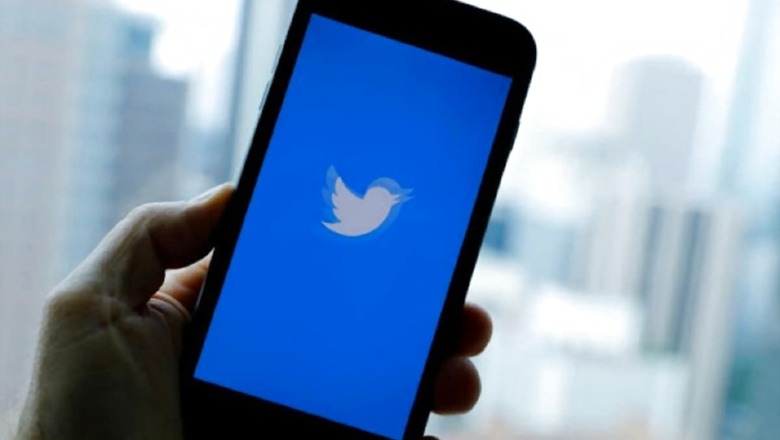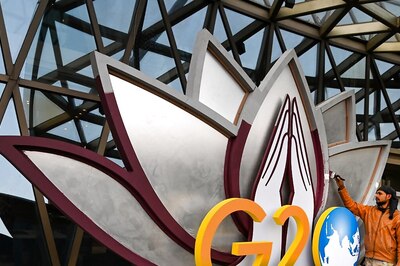
views
In the wake of the farmers’ agitation in India, the role of microblogging platform Twitter has become a centre of controversies, especially due to hashtags trending like farmer genocide, mushrooming of anti-India Twitter handles instigating violence and promoting hatred against India and challenging the integrity of the country, and Twitter officials also retweeting some such tweets.
The government has made its unhappiness clear to Twitter on this, citing that such developments are against the constitution of India and has told the company firmly that nothing less than the suspension of these handles is acceptable. At the same time, the attitude of Twitter doesn’t seem to be one of full compliance. Recent events have raised serious questions about the role and attitude of social media giants with regard to the unity and integrity of India, and the issue is whether these platforms should be allowed to have their way.
The Twitter issue is one of its kind. However, there is a history of issues with social media companies indulging in unethical and illegal acts.
Politicians have a history of using social media platforms for their benefit. Though former US President Donald Trump was at loggerheads with Twitter at the fag end of his term, throughout his term and even before that Twitter was the most darling platform for him. He was also known for having used other social media sites to take his political agenda forward.
Sometime back, a revelation came that the Cambridge Analytica company worked in the election campaign of Trump based on Facebook data of 8.7 million US people, and this company played an important role in his victory. Cambridge Analytica has also been in the news for all the wrong reasons earlier as well, when it was caught red-handed while using Facebook data of Indians to ignite social disharmony in the country for the political advantage of some political parties. Though Mark Zuckerberg has apologised for the breach of user data, Facebook earned a lot of bad name on that count, which even impacted its market valuation. Every now and then we hear about breach, leak or unethical sale of data by one or the other platform. The website of Cambridge Analytica has also claimed that the company worked for the winning party in the Bihar elections in 2010.
Though the role of social media companies has always been viewed with suspicion, the recently concluded presidential elections landed Twitter in a major controversy, when President Donald Trump received constant shocks from the company. Twitter’s comments over Trump’s tweets played a major role in creating doubts in the minds of US voters. The company has been mired in severe controversies as Donald Trump’s account was suspended following violent demonstrations in the United States.
Given the fact that these social media companies have a huge user base and thus command a great control over private information of their clients, apart from their capability to further mine huge amounts of data using different algorithms, they can influence society and polity in different ways by impacting social and political narratives. If these platforms are allowed to have their way, our social fabric and democratic system may be seriously endangered. There may be merit in suspending/blocking Trump’s Twitter account. However, the same merit should have been reflected in the acts of Twitter, when it turned away from tweets by yet another head of the state, legitimising and instigating violence by a particular religious group.
Unyielding Power
Facebook with 33.6 crore accounts, its associate WhatsApp with 40 crore subscribers, Twitter with 7 crore Indian and 33 crore global users, are in a position to tweak social and political opinions, if they wish, the way they desire. This huge unyielding power makes them invincible. Though most of the popular services of social media players like Facebook, WhatsApp, Instagram, Twitter, Linkedin, etc, are available for free, their business model is such that they use their large database to enhance their income. Google and Facebook have become the largest revenue earning companies from advertising. Twitter too is earning massive revenue from advertising.
Social media has developed in recent times and laws to deal with it still have to take shape. Till such time, laws get enacted, social media platforms may continue to endanger our social fabric or even our hard-earned democracy. For a long time it was being noticed that Chinese apps were promoting illegal, unethical and anti-social content on their platforms. However, it took a long time for the government to lawfully ban them.
Competition is The Way Forward
It seems that the monopoly over social media by a few platforms is making them think that since they don’t have competition, they can have their way. We shouldn’t forget that developing these platforms is no rocket science. Already, some alternatives to Twitter, like Koo and Tooter have emerged. For WhatsApp, platforms like Signal, Sandesh and Telegram are also becoming popular. Even before banning Chinese apps, many Indian apps had emerged on the scene. However, after the ban on Chinese apps, their business has increased manifold. It’s important to note that China doesn’t allow Facebook, WhatsApp or even Twitter.
It has its own alternative platforms. In the present circumstances, looking at the popularity of these platforms and the consumer satisfaction derived from them, an immediate ban on these platforms doesn’t seem to be a plausible solution, but they may be made to follow the law of the land. However, the present controversy may prove to be a boon if we try and develop our own Indian platforms, which will not only curb monopolies of international giants in social media, it will also help save billions of dollars of foreign exchange. Competition among social media platforms will discipline them more and looming dangers to our democracy and unity and integrity of the nation could also be avoided successfully.
Read all the Latest News, Breaking News and Coronavirus News here



















Comments
0 comment